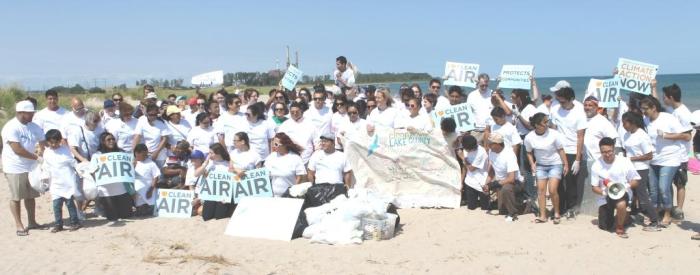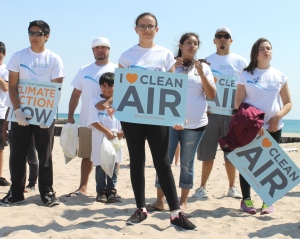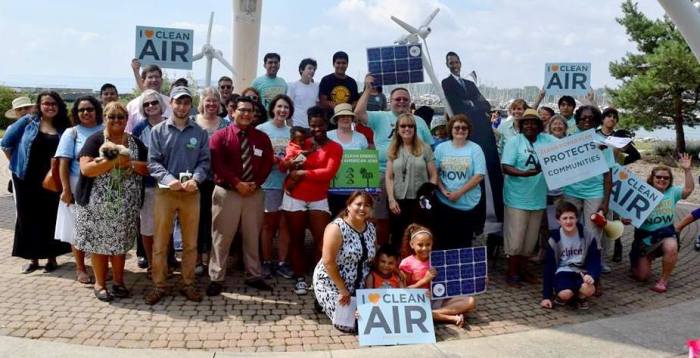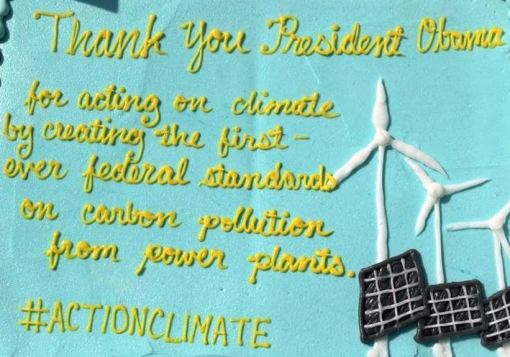Eight members of the Clean Power Lake County Campaign attended a March 9, 2016, hearing held by the Illinois Advisory Committee to the U.S. Commission on Civil Rights to tell how pollution from NRG Energy’s coal-fired power plant disproportionately affects minority and low-income residents in Waukegan.
Representing Clean Power Lake County and its coalition partners were Dulce Ortiz and Peggy Jones of Waukegan; David Villalobos, Waukegan Fourth Ward Alderman; Celeste Flores of Most Blessed Trinity Catholic Parish (Waukegan); Susana Figueroa of Faith in Place; Brian Urbaszewski of Respiratory Health Association; Barbara Klipp of Incinerator Free Lake County; and Christine Nannicelli of the Sierra Club.
Midwest Energy News published a good recap of the March 9 proceedings.
The Waukegan coal plant, which sits on the lakefront near a predominately Latino neighborhood, is the largest source of air and water pollution in Lake County. The plant was named one of the nation’s worst environmental justice offenders in a 2012 NAACP report.
Clean Power Lake County is concerned that pollution from the coal plant is impairing air and water quality and contaminating soil. The plant also reduces access to open space.
The findings of the Illinois Advisory Committee will support the U.S. Commission on Civil Rights’ 2016 federal statutory enforcement report on environmental justice.
“As the product of an Illinois community that has suffered from environmental racism, I commend our Illinois Advisory Committee for addressing this issue. This will ensure that affected Illinois communities will be a prominent part of our national report to the President and Congress on environmental justice for communities of color,” said Martin Castro, chairman of the U.S. Commission on Civil Rights.
The U.S. Commission on Civil Rights is an independent, bipartisan agency charged with studying and advising the President and Congress on civil rights matters and issuing federal enforcement reports.
For information about the reports and meetings of the Commission and its State Advisory Committees, visit www.usccr.gov.










